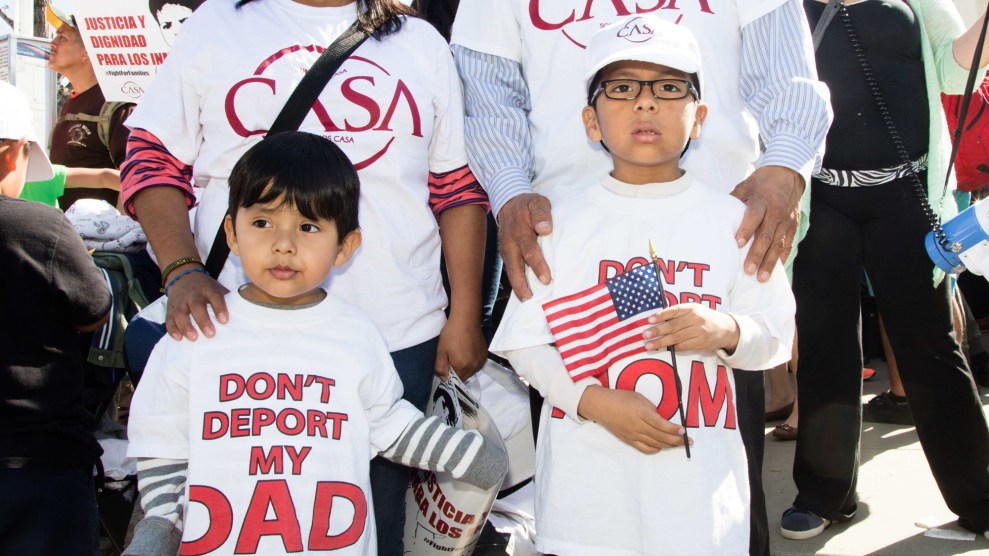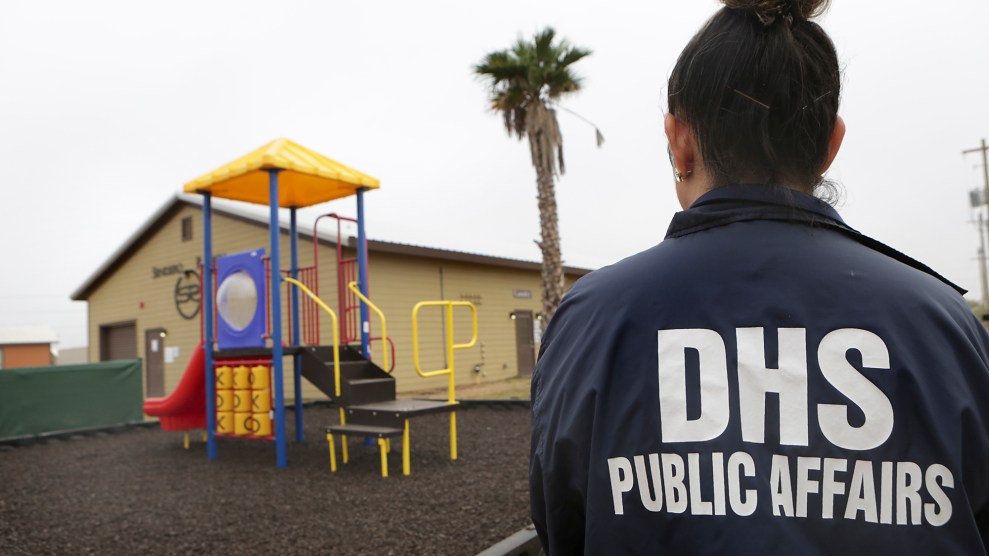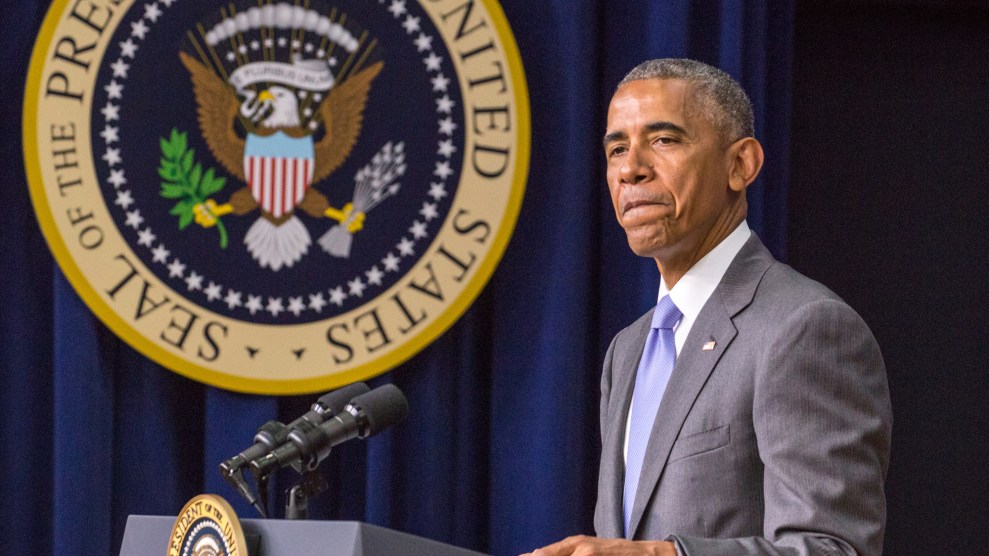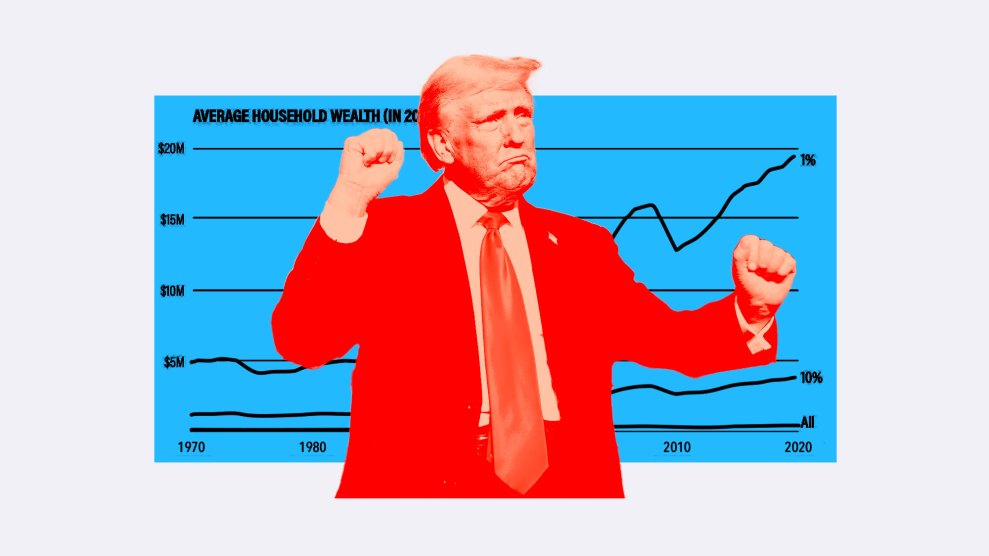
<a href="http://www.zumapress.com/zpdwnld/20160418_zaa_nc21_092.jpg?type=hires">Jeff Malet</a>/Newscom via ZUMA Press
When a district judge single-handedly blocked President Barack Obama’s executive actions on immigration last year, the situation looked bleak for millions of immigrants across the country who faced deportation. Now, a new lawsuit seeks to challenge that judge’s decision.
Obama’s immigration actions, announced in November 2014, would have shielded up to 5 million undocumented immigrants from deportation, including parents of US citizens and green card holders, and granted them temporary work authorization. The orders also would have expanded a similar program for young undocumented immigrants who came to the United States as children.
But last year, after 26 states challenged the executive actions in court, a district judge in Texas issued an injunction blocking their implementation across the country. The case made it all the way to the Supreme Court, whose justices remained deadlocked and failed to issue a ruling, which meant Obama’s immigration programs remained blocked and families could not use them to apply for relief from deportation.
In the new lawsuit, filed Thursday in a federal court in New York, lawyers from three immigrant rights groups argue that the Texas judge lacked the authority to suspend Obama’s new programs nationwide, including in states that were not party to the Texas lawsuit because they did not want to suspend the programs. “There’s no reason the injunction from Texas should block progress in New York and similar states,” Javier H. Valdes, co-executive director of Make the Road New York, said in a statement announcing the lawsuit.
The suit was filed on behalf of Martín Batalla Vidal, an undocumented 25-year-old medical student in New York who came to the United States illegally from Mexico when he was seven years old. In February 2015, Batalla Vidal received three years of work authorization under a program, called Deferred Action for Childhood Arrivals, that had been expanded by Obama’s executive actions. But because the Texas judge issued the injunction, Batalla Vidal’s work authorization was reduced to two years—the maximum period allowed by the DACA before Obama expanded it. The lawsuit argues that the injunction should not apply to residents in New York, a state that was never a party to the Texas lawsuit and that falls outside the jurisdiction of the district court in Texas. If the New York judge agrees, it could affect not only immigrants like Batalla Vidal who are applying to the DACA program, but also undocumented parents who are applying for relief under a different program.
“It’s hard to know at this early juncture what this lawsuit will achieve,” said Melissa Crow, legal director at American Immigration Council, a pro-immigration nonprofit in Washington, DC. “But the nationwide scope of the injunction…is way beyond the court’s jurisdiction.”
Batalla Vidal’s lawyers say the injunction has affected the academic and professional goals of thousands of immigrants across the country. “When I first filed for DACA, I was excited to get a three-year work permit and move forward with my life,” said Batalla Vidal. “That was taken away by one judge in Texas…I’m filing this lawsuit for myself and the thousands of others like me who have been wronged by this judge’s decision.”
















